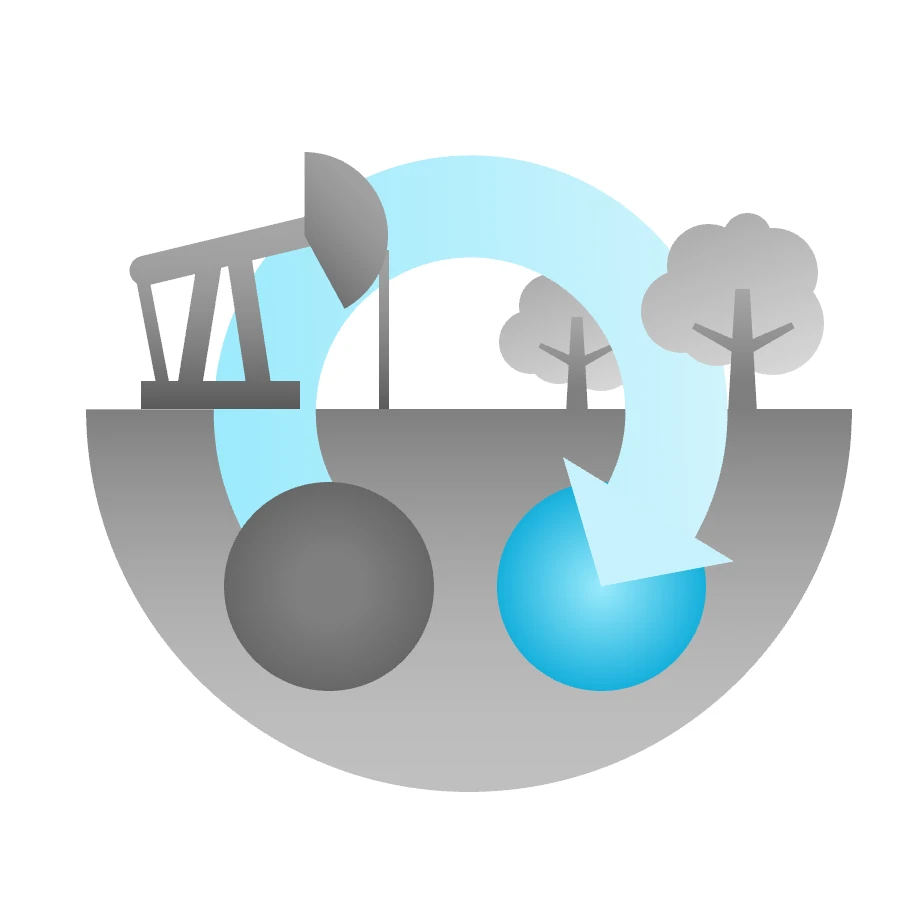Our Research
The reserach in our section falls into three categories: Geo-Energy, Geo-environmental Protection, and Computational Geosciences.
Geo-Energy
Our research on geo-energy explores methods to harness Earth's geothermal energy, advances the storage of liquid hydrogen in the subsurface, and studies the carbon footprint.
Geo-Environmental Protection
Industrial operations and anthopogenic interventions carry risks. Our research explores techniques to mitigate the impact of fossil fuel consumption, and analyzes the consequences of subsurface operations to reduce their future impact.
Computational Geoscience
The subsurface is mostly out of reach and out of sight. To rigorously analyse and predict the impact of subsurface operations, we advance research in data assimilation, optimization and control theory, and numerical simulation.
Our Publications
Below, you can access a list of our section's most recent publications.
- X. Tian, M. Asadiesfahani, J. Groenenboom, D.V. Voskov, Stochastic Discrete Well Affinity (DiWA) Model for Data Quality Diagnostic and Production Forecast, In European Conference on the Mathematics of Geological Reservoirs 2022.
- Cong Xiao, Hai-Xiang Lin, Olwijn Leeuwenburgh, Arnold Heemink, (2022), Surrogate-assisted inversion for large-scale history matching: Comparative study between projection-based reduced-order modeling and deep neural network, In Journal of Petroleum Science and Engineering Volume 208 p.1-19.
- Alexandros Daniilidis, Julian E. Mindel, Fleury De Oliveira Filho, Luca Guglielmetti, (2022), Techno-economic assessment and operational CO<sub>2</sub> emissions of High-Temperature Aquifer Thermal Energy Storage (HT-ATES) using demand-driven and subsurface-constrained dimensioning, In Energy Volume 249.
- Justin Ezekiel, Anozie Ebigbo, Indra Arifianto, Alexandros Daniilidis, Thomas Finkbeiner, P. Martin Mai, (2022), Techno-economic performance optimization of hydrothermal doublet systems: Application to the Al Wajh basin, Western Saudi Arabia, In Geothermics Volume 105.
- C.P. Marsman, F.C. Vossepoel, Ylona van Dinther, Rob Govers, Towards Estimating Postseismic Parameters and Processes Using Ensemble Data Assimilation
- Mark Khait, Denis Voskov, (2021), A GPU-based integrated simulation framework for modelling of complex subsurface applications, In Society of Petroleum Engineers - SPE Reservoir Simulation Conference 2021, RSC 2021, Society of Petroleum Engineers.
- Samuel O. de Almeida, Pacelli L.J. Zitha, Grigori Chapiro, A Method for Analyzing Electromagnetic Heating Assisted Water Flooding Process for Heavy Oil Recovery, In Transport in Porous Media Volume 144 p.89-110.
- A. Novikov, D. V. Voskov, M. Khait, H. Hajibeygi, J. D. Jansen, (2021), A collocated finite volume scheme for high-performance simulation of induced seismicity in geo-energy applications, In Society of Petroleum Engineers - SPE Reservoir Simulation Conference 2021, RSC 2021 p.1-22, Society of Petroleum Engineers.
- S. H. Lee, M. Ţene, S. Du, X. Wen, Y. Efendiev, (2020), A conservative sequential fully implicit method for compositional reservoir simulation, In Journal of Computational Physics Volume 428.
- T. Kadeethum, S. Lee, F. Ballarin, J. Choo, H. M. Nick, (2021), A locally conservative mixed finite element framework for coupled hydro-mechanical–chemical processes in heterogeneous porous media, In Computers and Geosciences Volume 152 p.1-16.








